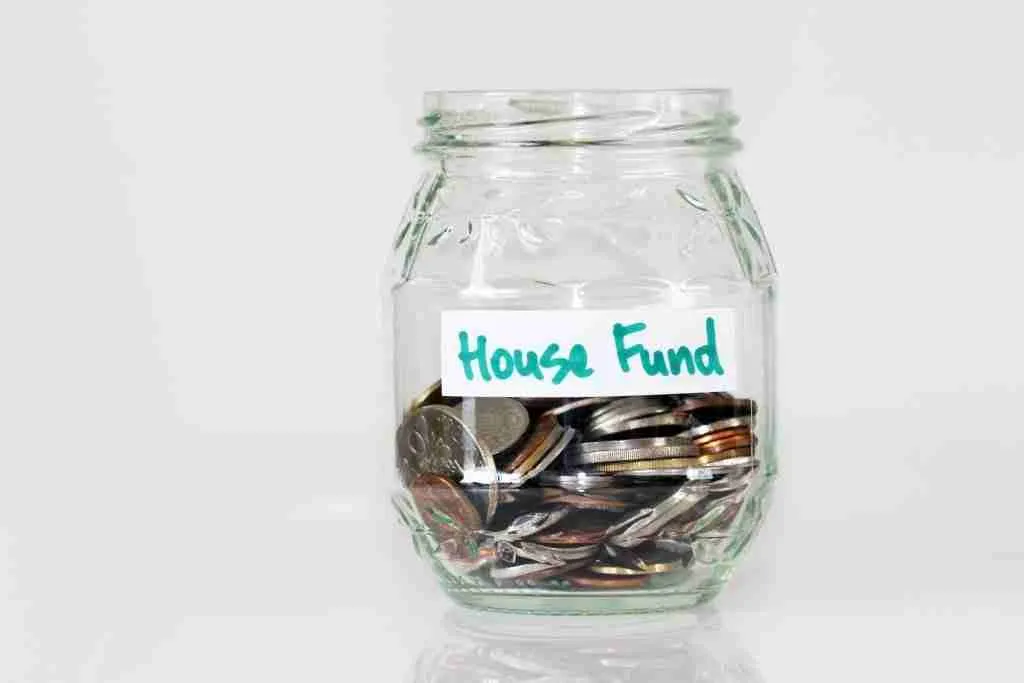How much does the average person have in savings UK? (What you need to know)
How much does the average person have in savings UK?
As of 2023, the average person in the UK has approximately £17,365 in savings. However, it’s important to note that 34% of adults in the UK have either no savings or less than £1,000 in a savings account. Additionally, 61% of UK adults save money either every month or most months. The average savings per household in the UK is significantly higher, at £76,301. This figure reflects all gross financial wealth, such as current and savings accounts.
But keep in mind that savings can vary based on factors such as age, income, and location.
Potentially a good question so that you can see where you are, average or above average, yippee.
However, the question is, what has the average savings figure got to do with YOU?
- How does it compare to what you have or could have saved?
- What do you want to achieve with your money? And are your savings good enough for that?
- When do you want to make work optional? And are your savings working towards that?
Averages can be interesting, and maybe even good yardsticks now and again but are particularly tricky when it comes to something as personal as YOUR finances.
What you think is right might be acceptable to some but not good enough for you.
If Jeff Bezos moved to your town, I imagine the average savings a person had would go up a lot. But what would that tell you about your savings needs, not a lot?
“Money, if it does not bring you happiness, will at least help you be miserable in comfort.”
– Helen Gurley Brown

How much savings does the average person have?
OK here are a few stats for you.
2020 figures for savings rates in the UK show that the average person had just over £6700 in savings.
Does that sound like a lot to you?
However, nearly 41% of people do not have enough savings to last more than one month without a paycheque. So that’s one month from severe financial problems.
1 in 3 Brits has less than £600 in savings.
Almost 10% of Brits have no savings at all. Non at all. That’s the day you stop getting paid and you are in a financial crisis.
Now the averages do increase as you move up the age ranges, i.e. the older you are the higher the average savings is.
The younger your age, the likelier you are to have lower levels of savings.
This table provides a clearer comparison between the average savings of males and females within different age groups in the UK.
Average UK savings by age
| Age Group | Average Savings UK (Male) in GBP | Average Savings UK (Female) in GBP |
|---|---|---|
| 18-24 | £2,966 | £1,821 |
| 25-34 | £4,257 | £2,616 |
| 35-44 | £5,995 | £2,849 |
| 45-54 | £5,995 | £2,849 |
| 55-64 | £6,364 | £3,445 |
| 65+ | £7,490 | £3,642 |
Average net worth uk by age
- For people over 55, just under 2.5% had no savings at all.
- The average savings of 18 to 24 in the UK stands at £2,481,
- For 25 to 34-year-olds its £3,544,
- For 35 and 44 the average is just under £6000.
- 45 -54-year-olds have just over £11,000 saved
- The over 55’s are likely to have the most considerable savings with on average just over £20,000.
All these figures may seem high or low depending on what sort of lifestyle you are hoping to lead and what kind of safety net you need to ride out any bumps in the road. I don’t know something like a world pandemic. You know the usual kind of thing.
Average savings uk
| Age Group | Average Savings UK (£) | Percentage of Income Saved (%) | Average Net Worth (£) |
|---|---|---|---|
| Under 25 | 2,481 | 9% | 6,000 |
| 25 to 34 | 3,544 | 9% | 35,000 |
| 35 to 44 | 4,129 | 9% | 80,000 |
| 45 to 54 | 6,029 | 11% | 159,000 |
| 55 to 64 | 7,488 | 13% | 233,000 |
| 65 and over | 10,635 | 17% | 285,000 |
The “Average Net Worth” column represents the average net worth in pounds sterling (£) for each age group. Net worth includes savings, investments, property, and other assets, minus any debts.
Note that net worth can vary widely within age groups due to various factors such as income, investments, inheritance, and spending habits.
“Money is better than poverty, if only for financial reasons.”
– Woody Allen

UK Photo by Erik Mclean on Unsplash
How much does the average person save a month in the UK?
The figures are a little dated from 2014, but at this time the average person in the UK saved just over £107 per month. Its probably higher than this in 2020 or maybe not with the year we have had thanks Covid.
Save just over a £100 a month could be great or not so good. It all depends on what you could have saved and what you are saving towards.
Maybe it’s enough or, frankly, you just aren’t putting in enough effort – what does your gut say about your current savings level?
Depending on what and when you want to spend that money, it will give you an indication if it’s enough for you or you need to up your game.
Are you saving for:
- Short term things – for things needed within the next 12 months
- Medium terms – up to 5 years away
- Longterm 10+ years away and possibly into retirement
It’s possible you need to save for all three most of the time to build up the momentum you need to reach your more expensive goals like a house or the most expensive of all retirement.

Still deciding on the size of the house. Photo by Sandy Millar on Unsplash
How much should I save each month?
Whatever you can afford to, to get you to where you want to be asap.
There is no set amount you should save. It’s more about what are you saving for and what is it going to take you to get you there.
How much is a factor of how much you could save before it became painful, uncomfortable or reasonably easy? And how these three potential levels of saving moved you towards your goals.
If it’s for an important goal, then you might want to put in more effort to get there.
You can divide the cost of the goals by a number of months to figure out how much it will cost and how long it might take.
If your also factoring investment returns, then you are looking at not only the rate of savings, the amount of time and the rate of interest or return you get.
There are some great calculators here to figure all these types of sums out.
Your first saving savings goal could well be to have an emergency fund of 3-6 or more months of living costs in an easy-access account. Who knows what you might need the money for, Car or house repairs, loss of income global pandemics etc.
Factors that affect your savings
Where does all the money go? Hmmm, it’s going somewhere, and it doesn’t seem to want to stay we me for long. Was it something I said?
You don’t have anything to save for: or to spend your money on
One of the biggest ones surprisingly is often you don’t have anything to save for. Yes, we all have the idea because we think that having savings could be a good idea, but unfortunately this rarely seems to turn into actual savings.
Thinking you should have savings because you should, funnily enough, doesn’t lead to savings.
Here’s the real reason you don’t have savings – you have nothing to spend on!
Hang on a minute I’ve got loads of things to spend my money on” I hear you say. That may be true but nothing that requires you to save money for!
Do you find that most of your money seems to go on day to day things? That’s because life can be expensive but also because you have nothing out in the future you really really want. Enough for you to start saving for.
You don’t have a plan.
If you don’t have any sort of plan, short, medium or long term ideas, you can get trapped into living for today and only seeing one paycheque ahead of you. This leads to short term thinking and no planning for a brighter financial future.
A financial plan even a very basic one can set out your actions into clear milestones, what to do when and how in order to reach your goals. Breaking goals down can make them seem more manageable and help you see how and if you are progressing towards them.
Start with a pen and paper.
You’ve no idea what’s going on
This is shorthand for saying you don’t have a budget spending plan and or you don’t track what’s coming in and out.
This can be “easily” solved by taking an interest in what’s going on in your bank accounts, credit cards, loans etc.
There are so many apps and bank accounts out there now that can do this for you with a bit of set-up.
Chasing the Jones’s
Social media, adverts and your friends are calling you like Gollum to the ring to spend spend spend.
Does it feel like you can’t spend it fast enough chasing something?
You are not living within your means.
After factoring in all of the above is that you are not living within your means, i.e. you spend more than you make.
Could you make more money and spend less? Seems simple but tricky if you don’t have a plan, anything to save for or know where your money is currently going.
Would you like to change any of this?
How to increase your savings
Pay yourself first. Once you get paid, save some money straight away and live off what’s left. Not spend then save. This little trick could help you start building up some monthly savings.
Automate your finances. Set up automatic payments to avoid paying late fees. Set up automatic savings at the beginning of the month also to take you out of the decision-making process. It will just get done without you even thinking about it.
Look for ways to save more. Can you haggle on your monthly bills?
Look for cheaper deals on the below
- Electricity
- Mobile phones
- Internet
- Rent
- Food shopping
- Gym membership
Are there any activities you could cut down on or reduce for a while or forever?
FAQ: How much does the average person have in savings?
How much savings should I have at 40?
As a general rule of thumb, you should have at least three to six months’ worth of living expenses saved. That way, if something unexpected comes up, you’ll have the money to cover it.
If you are looking to make work optional asap then you will need a multiple of your living expenses.
Once you have 25 times your living expenses saved up in investments then work is likely optional for you.
Average total savings by age UK
ONS figures show average savings by age uk
-People aged 18-24 have an average of £2,481 saved. People aged 25-34 have an average of £3,544 saved.
-People aged 35-44 have an average of £5,995 saved. People aged 45-54 have an average of £11,013 saved.
-People over 55 years old have on average £20,028 in savings.
Can I cash in a pension from an old employer?
The answer to this question depends on the specific pension plan in question. Some pension plans may allow you to cash out your benefits when you leave your employer, while others may require you to wait until retirement age.
However, you cannot access your pension benefits in most cases until you reach retirement age. If you have any questions about your pension plan, contact your former employer or pension provider to get the details.
Can I cash in my pension early under 50?
Generally, pensions are not cashed in until retirement age. However, there may be exceptions depending on the terms of your pension plan. For example, some pension plans allow you to cash in your pension before retirement age if you are experiencing serious ill-health issues.
If you are under 50 and would like to cash in your pension, it is best to speak with a pension specialist to determine your options as there are likely to be significant penalty fees for early access. The specialist can help you understand the terms of your particular plan and advise you on the best way to proceed.
Summary: How much does the average person have in savings UK
Again how much average uk savings are may be higher or lower than what you have. What does that actually mean to you?
The average savings UK is £6700, more or less.
How much YOU need to have in savings may be much higher or lower than that given what you want your money to achieve for you in the short, medium and long term.
Understanding what YOU need in savings is much more vital for you to figure out.
Putting a plan together for the things you want to achieve in life and the type of lifestyle you want to lead is likely to result in your savings increasing and being used on what you really really want.
Tracking your money, looking for ways to reduce your costs and increasing your income are all excellent ways to start growing your savings for whatever is coming ahead.
If you would like to help planning your finances sign up for our email newsletter and set up a call with us.
Need a Helping Hand with Your Finances? 🤝💰
If you’ve made it this far, congratulations! You’re already taking steps towards a healthier financial future. But maybe you’re feeling a bit overwhelmed. Maybe the thought of budgeting, saving, and investing still makes you break out in a cold sweat. Don’t worry, you’re not alone, and help is available.
At Financially Happy Money Coaching, I understand that money isn’t just about numbers. It’s about emotions, behaviours, and life choices. That’s why we’re here to help you take the stress out of money and build wealth in a way that aligns with your values and lifestyle.
Whether you’re just starting out on your financial journey or you’re looking to take your finances to the next level, we’re here to guide you every step of the way. I’ll help you understand your financial behaviours, set realistic goals, and create a personalized plan to achieve those goals.
So, why wait? Start your journey towards financial happiness today. Remember, the best time to start was yesterday. The second best time is now.
Click here to schedule your consultation and let’s make your money work for you, not vice versa. 💪💰
Remember, financial freedom isn’t a destination; it’s a journey. And every journey is easier when you have a guide. So, let’s embark on this journey together and create a financially happy future. 🚀💸







